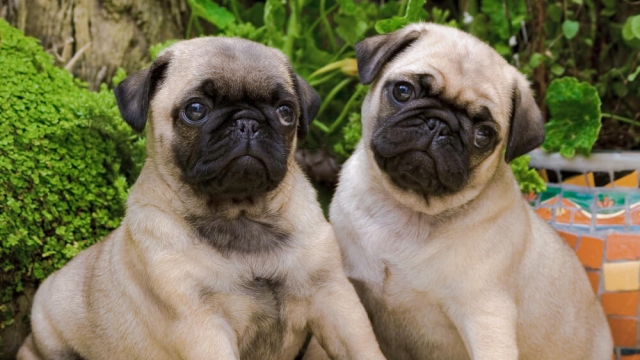Tinkerbelle is a dog-influencer social media star who has cuddled with Taylor Swift and has 466,000 followers on Instagram. But to Sam Carrell, her owner and manager, she's much more than a business partner.
"We're inseparable. And I love her immensely and would do anything for her," says Carrell.
That's why, in 2018, Carrell had a veterinarian take a small skin sample from Tinkerbelle's thigh and send it to a Texas company called Viagen. Tinkerbelle's DNA is now stored with the goal of cloning her in the future, if Carrell so chooses.
"Just knowing it's there if I ever want to have her cloned—it's just reassuring, especially at her celebrity status level," says Carrell.
At $50,000 per dog or cat, cloning your pet with Viagen may not be cheap.
But pet owners who have opted for the procedure include Barbra Streisand, who cloned her beloved Samantha, a Coton de Tulear, and Simon Cowell, who cloned his Yorkshire terriers.
Since Scottish scientists cloned Dolly the sheep in 1996, researchers have cloned at least twenty-two species.
"There are thousands of house pets that have been cloned," says Robert Klitzman, a bioethicist at Columbia University.
That includes "super sniffer dogs in airports who are genetically very able to sniff out drugs or whatever it is the police want to find. We've been able to clone species that are endangered in some way of extinction."
Here's how it works. "The best way to describe cloning is actually an identical twin born at a later date," says Melaine Rodriguez, Client Services Manager, Viagen. What we need in order to clone the pet is a living cell from the pet's body," says Rodriguez. "The pet owner's veterinarian would use our biopsy kit to take a few small skin punch biopsies from the pet. They're four millimeters in size."
SEE MORE: Scientists Have Successfully Cloned Primates For The First Time
Once the samples are sent to Viagen, the process starts in earnest. Say it's a dog you're cloning; the nucleus from the cell from the pooch you're cloning goes inside the egg of another dog. That creates an embryo, which, under heat and the right chemical conditions, goes from one cell to two cells to four cells to eight to 16 to 30, 2 to 64, "and eventually would become an animal," says Klitzman.
"Hopefully at this point we have not just one, but we've made several of these, and we take several of them and implant them into the womb of an animal," he adds. With luck, the baby animal will survive to birth—a genetic clone.
Viagen also clones cats, like Belle, known on Instagram as Clonekitty, and horses, like Rico Suave, a show pony in Florida. "The original Rico Suave is a show pony who shows in Wellington, Florida, as well as all over the United States," says Lindsay Butzer, a vet and member of the family that owns him. "He's won a lot of prize money out there."
In 2019, her family decided to have him cloned, and the cloned pony is now three years old.
"He's doing great. People that have leased the original Rico have met the clone. And they say he has the same mannerisms. He looks at them the same way," she adds.
Animal rights groups oppose cloning pets.
"The problem is that we may need to take ten of these embryos from the petri dish and implant them into a dog, and to get maybe two of them leading to a pregnancy. Or we may need to take ten of these embryos and implant them into ten dogs, or 20 of these and implant them into ten dogs," says Klitzman. "I now have an identical clone of Fido, but we've actually led to the death of one or two dogs, and we've had to make several dogs pregnant who end up not delivering a dog at all. And pregnancy is stressful for animals just like it is for many humans."
Asked by Scripps News, Viagen wouldn't share the success rate of their process. "We will usually have a puppy or kitten born within two or three embryo transfers. So it's very rare that it takes a lot of attempts to be successful," says Melaine Rodriguez, Client Services Manager, Viagen.
Another ethical issue is that instead of cloning animals, families could instead adopt an animal in a shelter who needs a loving home.
For some pet owners, however, the love they have for their animals clearly outweighs any ethical concerns. "If the animal is something that's very emotional to you and you had a great connection with this animal for its entire life, if someone wants to clone their pet, I'm all for it," says Butzer.
It's a new chapter in our ever-evolving relationship with the animals we love.
Trending stories at Scrippsnews.com




